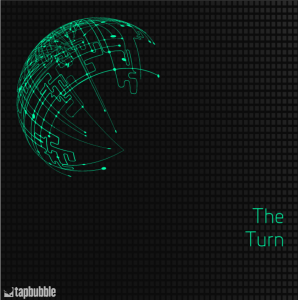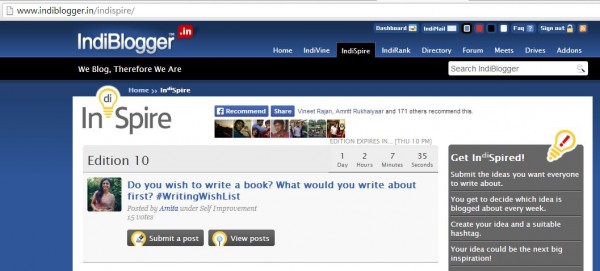‘I’d like to drive,’ he said, ‘I have a licence too now.’ And as he said this, his right hand involuntarily patted his back-pocket. His driving licence there was the reason behind the excitement in his voice. But I knew he wasn’t yet ready to drive on the highway, so I asked, ‘If I gave you this car, where would you drive it to?’
The boy blinked at me and stammered, ‘Alone?’
‘Yes, all alone.’
He thought for a moment and then replied, ‘I wouldn’t know.’ Then after a pause he went on, ‘Driving will be fun if you are with me. You’d know and you’d tell me where to go. I’ll drive though.’ I smiled and thought, ‘Is driving fun only when you go with someone you are comfortable with?’ So I asked, ‘What’s wrong with driving alone?’
‘Nothing wrong,’ he said, ‘but I would be too busy trying to drive only to reach some place and so would miss all the fun on the way. But if I am with someone I can stop and look around. I can talk as I drive. I can afford to be a bit inattentive too when I know there is someone there to warn me.’
‘This can be dangerous, you know,’ I said, ‘but I do agree about your missing a lot of new experiences and sensations when you’re driving alone. When you interact with your way, you get newer insights.’
The boy seemed happy that his idea of not driving alone was somewhat approved of. He then began telling me how he had made his driving better. ‘I try to brake as less as possible. This resolve to drive mainly with the clutch and the accelerator is what has improved my driving skills,’ he gushed.
‘Ah! So you’re learning to think like a writer now,’ I said, ‘Even writers interact with people and surroundings and when they write they try to put one complete idea in one go. Writers too conserve their energy by braking less.’
We also seemed to agree that every writer too needed to keep updating his insights. So he asked, ‘This means I will be allowed to drive more often, right?’
I smiled and said, ‘Right. The more you drive, the better you understand your vehicle.’ This led us to talk about the usefulness of being able to drive different kinds of vehicles. ‘And in different terrains,’ he offered helpfully.
‘So if you’re driving on a mountain road and there is a sharp turn, would you know what lies there hidden from view?’
He thought for a few seconds and then got up, opened the door and walked out. I knew he would be back with an answer, so I waited. He returned with a book from the library and said, ‘First I opened the door and found our cat standing just outside. On an impulse I followed the cat and she led me to our Study where I found this interesting book. So I brought it for you, thinking the answer might be somewhere in it.’
The book was a driving manual and I thanked him for getting it from the Study. Then I told him that he had actually stumbled upon the answers himself. ‘Hidden from you is always something unexpected and will generally indicate to you what you need to do. Though as you turn, you must just be observant,’ I said.
The boy nodded and asked, ‘What does the book tell me about driving around a turn?’
‘That’s simple. It tells you that there is a lesson around every turn and you just need to walk to it and discover the secrets in its pages.’ I knew the boy wasn’t convinced with my answer, so I added, ‘If there are no turns and twists, life would be so full of expectedness, wouldn’t it?’
‘Yes, and I don’t like every day to be the same as the previous one,’ he replied with earnest eagerness. On an impulse I asked him to go and see what was there behind the door now. He went and peered out, then looked at me and smiled, ‘Mom is coming with coffee for you and a glass of milk for me.’
‘So these turns are never boring,’ I said, ‘there is always something fresh and energising there.’
The boy said, ‘I think I’m going to love driving through turns now. They seem so full of adventure… and surprises.’ He then took a couple of gulps of chilled milk that his mother had brought for him and said, ‘It is a turn that makes driving so exciting. Do turns excite you too? I mean, is driving and writing similar?’
I said, ‘Yes, a writer is like a driver. And writers too love to go around turns and see the unseen. The truth is that they are all writing about insights that are not so obvious to most. But writers have one extra skill.’
The boy was listening.
‘Writers can create turns.’ And the boy said, ‘I’ll write tales where turns are as important as they are in my real life.’
Indispire — Edition 10… on Indiblogger.
#WritingWishList
Arvind Passey
30 April 2014











4 comments
aparna says:
May 1, 2014
‘Writers can create turns.’…absolutely
Arvind Passey says:
May 2, 2014
Thanks for dropping by, Aparna… I’m sure you took the right turn. 🙂
Aman Sidhana says:
Jun 10, 2014
‘So these turns are never boring’! 🙂
Arvind Passey says:
Jun 10, 2014
Well, nice to see you here reading my posts, Aman. Do read my newer ones too…